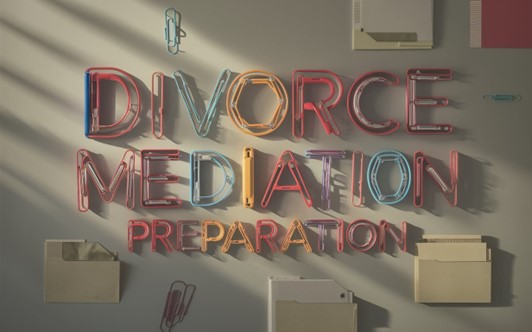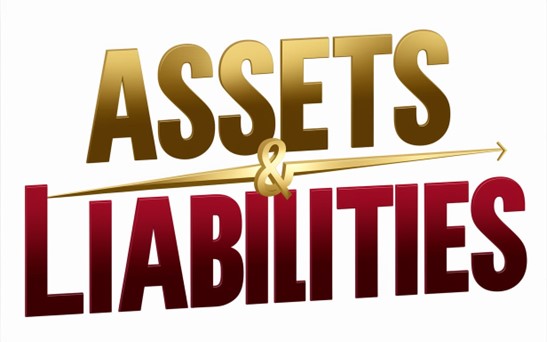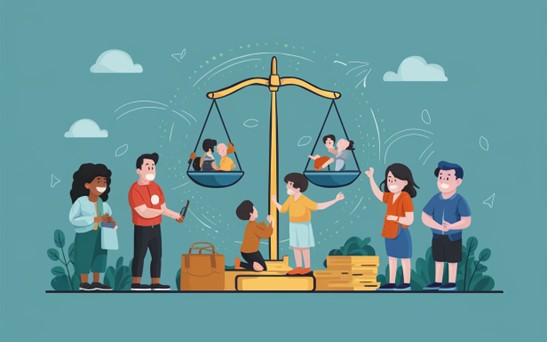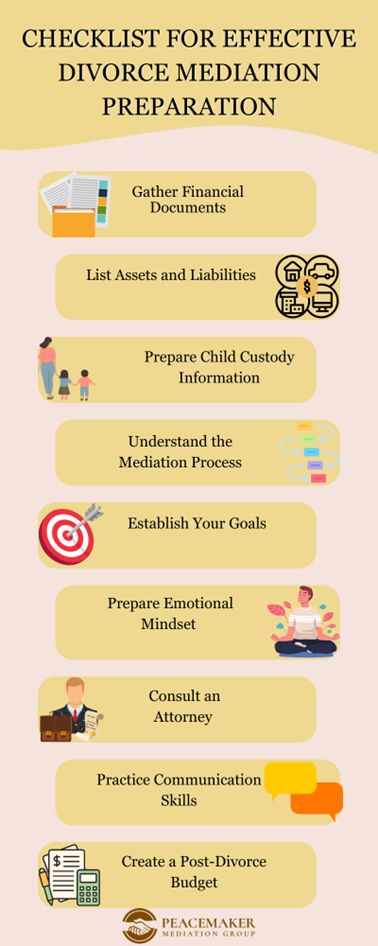
9 Tips and a Handy Checklist for Divorce Mediation Preparation

Divorce mediation can be a practical alternative to traditional court proceedings. It provides a less stressful environment for resolving conflicts.
Both parties can attend to their needs through structured discussions and professional guidance and reach a fair agreement.
How can you best prepare for divorce mediation? Understanding what to expect and having a preparation strategy can significantly impact the outcome.
With helpful tips and a thorough checklist, this guide aims to support your journey through mediation by offering clear and actionable steps.
1) Gather Financial Documents

Before starting the divorce mediation process, gathering all necessary financial documents is crucial.
Individuals should collect recent pay stubs, bank account statements, and tax returns. These documents provide a clear picture of their financial situation.
Moreover, they should list all assets and debts, including property deeds, car titles, and loan statements.
A detailed list helps ensure everything is accounted for, making the mediation process smoother.
2) List down Assets and Liabilities

Listing down all assets and liabilities is crucial during divorce mediation. Start by gathering information on everything owned jointly and individually.
This should include properties, bank accounts, investment accounts, vehicles, and business interests.
Also, list all debts and liabilities. These include mortgages, loans, credit card debts, and other outstanding payments. Don’t forget smaller items like memberships or reward points, as these might also be considered assets.
Being thorough with this list helps in fair division and can save time during mediation. If you need clarification on the value of some assets, consider hiring a financial advisor.
3) Prepare Child Custody Information

Child custody is a critical part of divorce mediation. Start by knowing the difference between legal and physical custody.
Legal custody involves decision-making rights for the child, while physical custody concerns where the child lives.
List your child’s daily needs, including school, medical, and extracurricular activities. This list will help ensure all essential aspects are covered.
Discuss and document your preferred custody arrangement. Be prepared to explain why your proposed plan is in your child’s best interest.
Consider all possible arrangements, including joint and sole custody, and be open to compromise. Think about holidays, weekends, and other significant times.
4) Understand Mediation Process

It’s essential to know how divorce mediation works. This process generally follows a few key steps.
First, both parties must agree to mediation and find a qualified mediator. The mediator guides the discussions but does not make decisions for the couple.
Then, each party presents its concerns and interests. The mediator helps identify common ground and issues that need resolution.
Discussions may cover asset division, child custody, and support payments. Each session aims to move parties closer to an agreement.
Throughout, it’s vital to stay calm and focused. The mediator may suggest taking breaks if discussions become too intense. The goal is to reach an agreement that both parties can accept.
If you’re ready to get started, call us now!
5) Establish Your Goals
Establishing clear goals is crucial for a successful divorce mediation. Knowing what you want will help guide the discussion and improve outcomes.
Start by outlining your main priorities. These include child custody, division of assets, and alimony. Be specific about what is important to you.
Consider the needs of any children involved, including their physical and emotional well-being. A strong co-parenting plan can ease their transition.
Your goals should be realistic and flexible. Mediation is about compromise, so be prepared to make trade-offs. Aim for solutions that satisfy both parties.
Write down your goals and share them with your mediator. This way, everyone is aware of what matters most to you.
6) Prepare Emotional Mindset
Both parties should focus on emotional readiness to ensure a smoother mediation process. It is essential to approach mediation calmly and understand it as a problem-solving session, not a battlefield.
Take time to reflect on personal emotions. This can help you maintain composure during discussions. Seeking support from a therapist or counselor can also be helpful. They can provide tools to manage stress and emotions.
Practicing mindfulness or deep breathing exercises can help one stay centered. Entering mediation with a balanced emotional state can significantly improve the outcomes for both parties.
7) Consult an Attorney
Consulting an attorney can make a big difference in divorce mediation. An attorney can provide valuable legal advice specific to your situation, helping you understand your rights and obligations.
An attorney can also guide you through complex financial matters. This is crucial in ensuring a fair division of assets and liabilities. Legal advice helps you avoid costly mistakes.
Moreover, an attorney can review the mediation agreement before you sign it. This ensures that the agreement is fair and legally sound. An extra set of eyes can catch any potential issues.
Hiring an attorney might seem expensive, but it can save money in the long run. They help you avoid pitfalls that could lead to future legal problems. It’s an investment in your future stability.
8) Practice Communication Skills
Effective communication is key in divorce mediation. Both parties should focus on clear and respectful dialogue. Practicing expressing thoughts and feelings without hostility helps.
Role-playing different scenarios can be beneficial. This allows both individuals to prepare for different conversations and potential outcomes.
Active listening is also crucial. This means hearing what the other person is saying and responding thoughtfully. Practicing these skills can lead to more productive mediation sessions.
9) Create a Post-Divorce Budget
Creating a post-divorce budget is essential for financial stability. Review your income over the past two to three years, using your tax returns as a guide. List all sources of income, including any alimony or child support you might receive.
Next, categorize your expenses into needs and wants. Needs include housing, transportation, food, and insurance. Be honest when assessing what you can’t do without.
Utilize a detailed spreadsheet that calculates totals for both expenses and income. This will help you compare and understand your financial standing better. Various tools, like the Divorce Budget Spreadsheet, can simplify this process.
Regularly re-evaluate your budget as circumstances change. Life post-divorce can be unpredictable, so staying adaptable is crucial.
Importance of Divorce Mediation
Divorce mediation offers numerous benefits, including reduced emotional stress, cost savings compared to litigation, and enhanced privacy.
These elements are crucial during the susceptible period of separation.
Reducing Emotional Stress
Divorce can be emotionally taxing. Mediation helps ease this burden by fostering a cooperative atmosphere, with both parties encouraged to communicate openly.
The process is guided by a neutral mediator who helps keep discussions civil. This approach can be less confrontational than courtroom litigation, which often increases strain.
Emotional well-being is prioritized, allowing individuals to focus on their future rather than past conflicts. Personal attention to each party’s needs contributes to a more amicable resolution.
Cost Effectiveness Compared to Litigation
Divorce mediation is generally less expensive than litigation. Court battles can be drawn out and costly, with fees for lawyers, court filings, and other expenses.
Mediation reduces these costs by offering a quicker resolution. Mediators typically charge by the hour, and the total cost is shared by both parties, making mediation a financially viable option.
Families can save money that can be used to rebuild their lives post-divorce rather than spending it on prolonged legal battles.
Maintaining Privacy
Privacy is a significant concern during divorce proceedings. Court cases are public records, which can expose personal details. Mediation sessions are confidential, ensuring that sensitive information remains private.
This privacy allows both parties to speak more freely and honestly without fear of public scrutiny.
Agreements reached in mediation are not part of the public record, making mediation a discreet choice.
Keeping these matters private can protect the dignity and privacy of both parties and any children involved.
If you’re ready to get started, call us now!
Understanding the Mediation Process
Divorce mediation is a structured process to help couples reach a mutual agreement. It involves multiple steps, starting with an initial consultation and guided by a neutral mediator.
Initial Consultation
The initial consultation is usually the first meeting between the couple and the mediator. During this session, the mediator explains the mediation process, its goals, and what to expect. This is also the time to discuss fees and scheduling.
Couples often use this time to voice their concerns and ask questions. It’s important to bring any relevant documents, such as financial records or prior agreements.
Both parties should be prepared to discuss their goals for the mediation. This initial step sets the stage for a more efficient and focused mediation process.
Role of the Mediator
The mediator is crucial in facilitating discussions and helping both parties reach an agreement. Unlike a judge, the mediator doesn’t make decisions but guides the conversation.
The mediator remains neutral, ensuring both sides are heard and their concerns addressed.
A good mediator helps clarify issues, explore options, and find common ground. They are skilled at managing conflict and keeping the discussions productive.
Confidentiality is a cornerstone of mediation, so parties can freely discuss their issues without fear of being used against them in court.
Steps in Mediation Sessions
Mediation sessions typically follow a consistent structure. The first step is to outline the issues that need resolution.
This could include child custody, asset division, and support payments. The mediator helps prioritize these issues so that the most pressing matters are addressed first.
Next, both parties present their perspectives and propose solutions.
The mediator then facilitates a discussion to bridge gaps between the parties’ positions. This step often involves negotiation and compromise from both sides.
Sessions can vary in length, but they aim to address all major concerns in a series of meetings.
Finally, the mediator helps draft a settlement agreement once an agreement is reached.
This document outlines the agreed-upon terms and can be submitted to the court for final approval.
This structured yet flexible approach makes mediation a viable alternative to traditional litigation.
Resolve Disputes with Compassion at Peacemaker Mediation Group
Disputes can strain your relationships and disrupt your peace of mind. At Peacemaker Mediation Group, we turn conflict into resolution through professional mediation.
Our experienced mediators specialize in resolving family, with empathy and understanding.
Don’t let unresolved issues cast a shadow over your future. Contact Peacemaker Mediation Group today and move forward with renewed harmony and confidence.
Contact Us Today For An Appointment
Frequently Asked Questions
What are the necessary items to include in a divorce mediation checklist?
Essential items for a divorce mediation checklist include financial documents, a list of assets and liabilities, child custody information, and clearly defined goals. Knowing the mediation process is also important to help set realistic expectations.
How can one emotionally prepare for divorce mediation?
Emotional preparation involves staying calm and focusing on the future. Practicing your speech and setting clear goals can help. It’s also wise to take breaks whenever you feel overwhelmed to maintain equilibrium.
What are some critical questions to address regarding child custody during mediation?
Key questions include visitation schedules, holidays, and birthdays. Discuss how decisions about education, healthcare, and extracurricular activities will be made. Consider the child’s preferences and needs to meet their best interests.
What are common mistakes to avoid saying during divorce mediation?
Avoid using accusatory language or making personal attacks. Focus on resolving issues rather than assigning blame. Statements like “You never…” or “You always…” can escalate tensions and hinder productive discussions.
What strategies can be effective when mediating with a high-conflict personality, such as a narcissist?
Set firm boundaries and stay calm. Use clear and direct communication. Focus on the facts and avoid getting drawn into emotional arguments. Having a skilled mediator who can manage the dynamics is also crucial.




